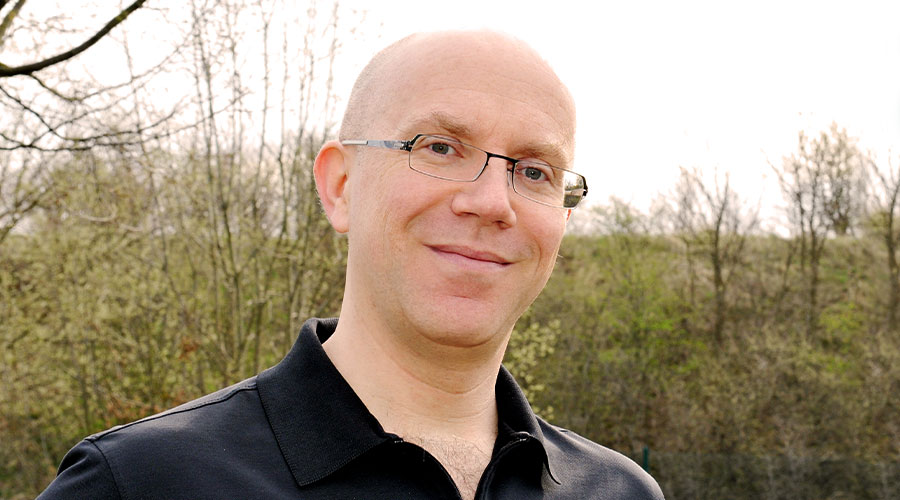| My Research Interest in RESIST |
Within RESIST we study the impact of microbiota during the neonatal period on the development, maturation and functional specialization of the gastrointestinal and systemic immune system, which is determining the individual’s immune status and susceptibility towards infectious diseases long- lastingly. Although it is widely accepted that microbiota are critically involved in this process, a detailed understanding of the involved microbial communities and microbiota-derived metabolites is still lacking.
Our research programme is based on our recent finding that early-life colonization by microbiota results in an epigenetic imprinting of unique functional properties within the gastrointestinal immune system and that neonatal infections can interfere with this process. Our long-term goal is to contribute to the development of therapeutic strategies based on early-life microbiome editing leading to a better development, maturation and functional specialization of the gastrointestinal and systemic immune system, thereby improving the health status of individuals long-lastingly.
Prof. Hühn about his scientific work
Prof. Dr. Jochen Hühn – Curriculum Vitae
Current Position
Undergraduate and Postgraduate Training
Academic and Research Posts
Other Scientific Roles
Awards and Prizes

10 Selected Publications
Pezoldt J, Pasztoi M, Zou M, Wiechers C, Beckstette M, Thierry GH, Vafadarnejad E, Floess S, Arampatzi P, Buettner M, Schweer J, Fleissner D, Vital M, Pieper DH, Basic M, Dersch P, Strowig T, Hornef M, Bleich A, Bode U, Pabst O, Bajenoff M, Saliba AE, Huehn J. Neonatally imprinted stromal cell subsets induce tolerogenic dendritic cells in mesenteric lymph nodes. Nat Commun. 2018; 9:3903
Pezoldt J*, Pisano F*, Heine W, Pasztoi M, Rosenheinrich M, Nuss AM, Pils MC, Prinz I, Förster R, Huehn J*, Dersch P*. CCR7 deficiency modulates T cell response and increases susceptibility to Yersinia pseudotuberculosis infection. J Infec Dis. 2017; 216:752-760. *equal contribution
Yang BH*, Hagemann S*, Mamareli P, Lauer U, Hoffmann U, Beckstette M, Föhse L, Prinz I, Pezoldt J, Suerbaum S, Sparwasser T, Hamann A, Floess S, Huehn J*, Lochner M*. Foxp3+ T cells expressing RORt represent a stable regulatory T cell effector lineage with enhanced suppressive capacity during intestinal inflammation. Mucosal Immunol. 2016; 9:444-457. *equal contribution
Yang BH, Floess S, Hagemann S, Deyneko IV, Groebe L, Pezoldt J, Sparwasser T, Lochner M, Huehn J. Imprinting of a unique epigenetic signature during in vivo Th17 differentiation. Nucleic Acids Res. 2015; 43:1537-1548.
Cording S*, Wahl B*, Kulkarni D, Chopra H, Pezoldt J, Buettner M, Dummer A, Hadis U, Heimesaat M, Bereswill S, Falk C, Bode U, Hamann A, Fleissner D, Huehn J*, and Pabst O*. The intestinal micro-environment imprints stromal cells to promote efficient Treg induction in gut-draining lymph nodes. Mucosal Immunol. 2014; 7:359-368. *equal contribution
Toker A, Engelbert D, Garg G, Polansky JK, Floess S, Miyao T, Baron U, Düber S, Geffers G, Giehr P, Schallenberg S, Kretschmer K, Olek S, Walter J, Weiss S, Hori S, Hamann A, Huehn J. Active demethylation of the Foxp3 locus leads to the generation of stable regulatory T cells within the thymus. J Immunol. 2013; 190:3180-3188.
Miyao T, Floess S, Setoguchi R, Luche H, Fehling HJ, Waldmann H, Huehn J, and Hori S. Plasticity of Foxp3+ T cells reflects promiscuous Foxp3 expression in conventional T cells but not reprogramming of regulatory T cells. Immunity 2012; 36:262-275.
Lahl K, Loddenkemper C, Drouin C, Freyer J, Arnason J, Eberl G, Hamann A, Wagner H, Huehn J*, Sparwasser T*. Selective depletion of Foxp3+ regulatory T cells induces a scurfy-like disease. J Exp Med. 2007; 204:57-63. *equal contribution
Floess S, Freyer J, Siewert C, Baron U, Olek S, Polansky J, Schlawe K, Chang HD, Bopp T, Schmitt E, Klein- Hessling S, Serfling E, Hamann A, Huehn J. Epigenetic control of the foxp3 locus in regulatory T cells. PLoS Biol. 2007; 5:e38.
Huehn J*, Siegmund K*, Lehmann JC, Siewert C, Haubold U, Feuerer M, Debes GF, Lauber J, Frey O, Przybylski GK, Niesner U, de la Rosa M, Schmidt CA, Brauer R, Buer J, Scheffold A, Hamann A. Developmental stage, phenotype, and migration distinguish naive- and effector/memory-like CD4+ regulatory T cells. J Exp Med. 2004; 199:303-313. *equal contribution

